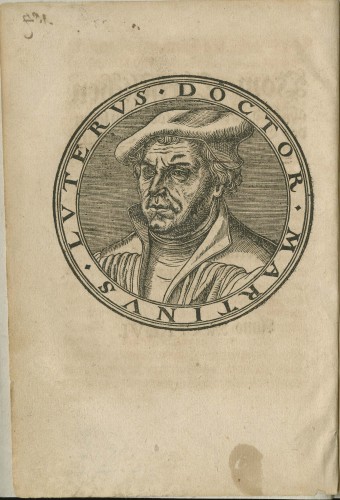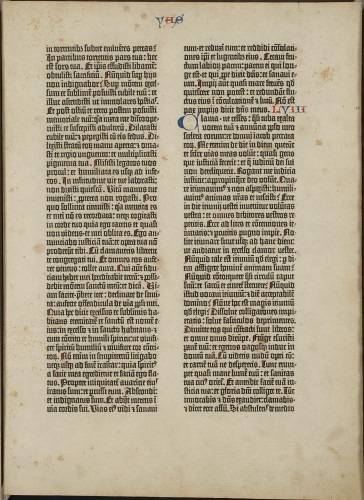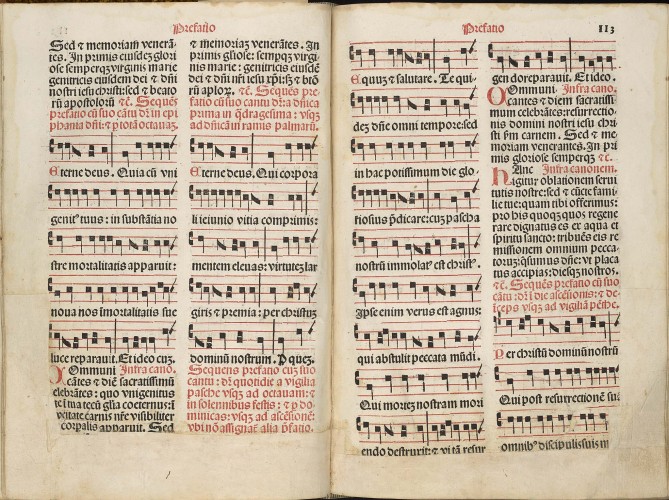Highlighting manuscripts and early printed books from the Special Collections Library, our new exhibit Reforming the Word: Martin Luther in Context commemorates the 500th anniversary of the Protestant Reformation. Join us for the opening lecture, Exhibiting the Reformation, by guest curator Professor Helmut Puff on Friday, September 15 at 4:30 P.M. in the Library Gallery.

Justus Jonas. Vom Christlichen abschied ausz diesem tödtlichen leben des Ehrwirdigen Herrn D. Martini Lutheri. Wittenberg: Georg Rhau, 1546
The late medieval German lands teemed with innovation. Novel forms of piety emerged, the demand for practical learning grew, more universities competed for students, and wealth from both trade and mining transformed social relations. The dissemination of texts and ideas on an industrial scale via the printing press reshaped communication, knowledge, and belief. In this context, reform—the renewal of a lost standard of the past in the present—became a battle-cry for religious, economic, and political change.

Biblia Latina [42 lines] (fragment, 1 leaf) [Mainz: Printer of the 42-line Bible (Johann Gutenberg and Peter Schoeffer), c.1455]
In 1517, Martin Luther, a professor of theology and a monk, published his scathing critique of indulgences, a church practice that allowed Christians to buy off time from suffering for one’s sins in the afterlife. Issued in the provincial town of Wittenberg, this call for academic debate and reform unleashed a series of events that led to the break-up of Latin Christianity. The Reformations that followed forever altered the lives of those in early modern Europe and beyond.

Missale Romanum. (Ed: Petrus Arrivabenus?) Venice: Georgius Arrivabenus, 29 May 1499Caption
Reforming the Word: Martin Luther in Context is on view in the Audubon Room 5 September 2017 - 15 November 2017.